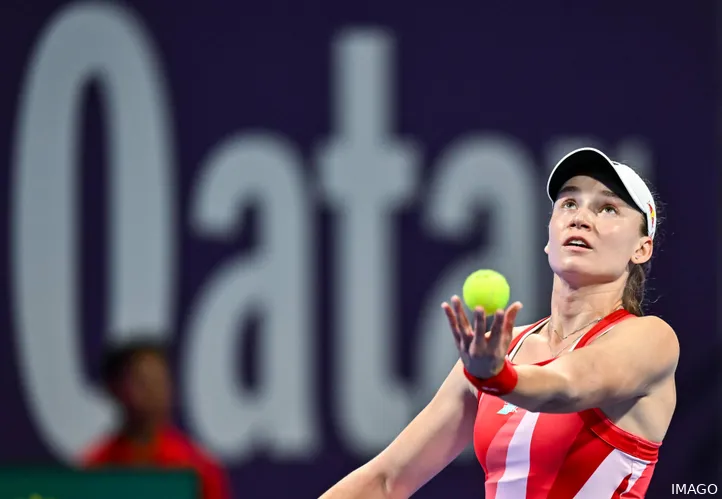
In the high-octane world of professional tennis, where every match tests physical and mental limits, Elena Rybakina has emerged as a beacon of resilience and raw talent. Fresh off leading Kazakhstan to a triumphant qualification for the 2025 Billie Jean King Cup Finals, the world No. 10 didn’t mince words when addressing the grueling schedule that players endure. Her candid critique, sparked by the demanding timing of the qualifiers in Brisbane, has cast a spotlight on the toll that the sport’s relentless calendar takes on its stars, even as she celebrates her team’s hard-fought victory.
Rybakina was the driving force behind Kazakhstan’s stunning 2-1 upset over Australia at the Pat Rafter Arena, securing their spot in the finals set for Shenzhen, China, in September. Facing Australia’s Kimberly Birrell, she battled back from a 3-1 deficit in the first set and a perilous 5-1 hole in the second, clinching a 6-3, 7-6(4) victory with a masterful tiebreak. “It was such a difficult match,” Rybakina admitted, her exhaustion evident after a performance that extended her Billie Jean King Cup singles record to an impressive 8-1. Her teammate Yulia Putintseva set the tone with a 6-2, 6-1 rout of Maya Joint, though Australia salvaged a doubles point. The following day, Rybakina and Putintseva sealed qualification with a 3-0 sweep of Colombia, dropping just four games combined. “We’re super happy and excited to play in Shenzhen,” Rybakina beamed, crediting the team’s unity and the electric support from their federation president and traveling fans.
Yet, beneath the triumph, frustration simmered. The Billie Jean King Cup qualifiers, squeezed into mid-April amidst the European clay season, forced Rybakina to make tough choices. Opting to skip the Stuttgart Open, where she was the defending champion, she prioritized team duty—a decision that left her physically drained and battling allergies that flared post-match, leaving red spots on her face and neck. “I know that the schedule overall is very packed,” she said, her voice carrying the weight of a season that offers little respite. “It’s not easy to even schedule Billie Jean King Cup.” Her words echo a broader sentiment among players, who face a calendar that juggles WTA tournaments, Grand Slams, and team events with little breathing room.
The timing couldn’t be worse. With clay events like Madrid and Rome looming, followed by Roland Garros, players like Rybakina must navigate surface transitions while preserving energy. Her decision to skip Stuttgart cost her a chance to defend 500 ranking points, a gamble she accepted to honor her commitment to Kazakhstan. “We had great support, and we were focusing on singles to get the wins in such a competent way,” she noted, emphasizing the pride of representing her nation. But the physical toll was undeniable—after her Australia match, she required medical attention for her allergic reaction, a reminder of the human limits even a champion faces.
Rybakina’s critique resonates across the tennis world. The Billie Jean King Cup’s mid-season placement disrupts preparation for key tournaments, forcing players to choose between national pride and personal career goals. At 25, Rybakina is no stranger to sacrifice—her 2022 Wimbledon title and consistent top-10 presence prove her mettle. Yet, her comments highlight a structural issue: the sport’s governing bodies must balance tradition with player welfare. “It’s not easy,” she reiterated, a phrase that captures both her personal struggle and a collective challenge. Social media chatter has amplified her concerns, with fans and pundits debating the need for a more player-friendly schedule, though no consensus has emerged.
As Rybakina looks to Shenzhen, her focus shifts to recovery and clay preparation. Her Kazakhstan squad, bolstered by Putintseva’s crafty baseline play, dreams of a first Billie Jean King Cup title. “We have a really good team,” Rybakina said, her optimism undimmed despite the grind. For now, she carries the hopes of a nation while urging the sport to rethink its demands. Her Brisbane heroics—defying deficits and doubters—show why she’s a force, but her plea for change reminds us that even the toughest warriors need a fairer fight.
Leave a Reply